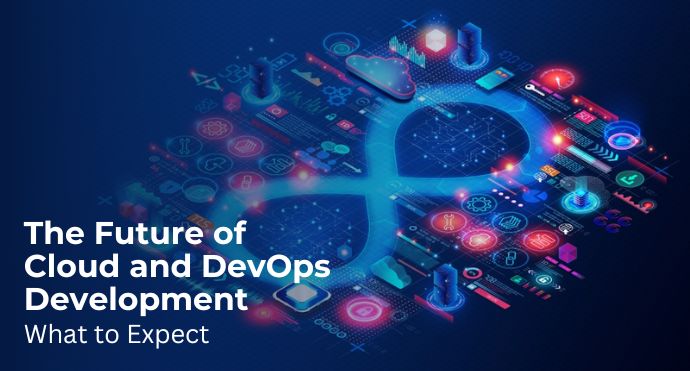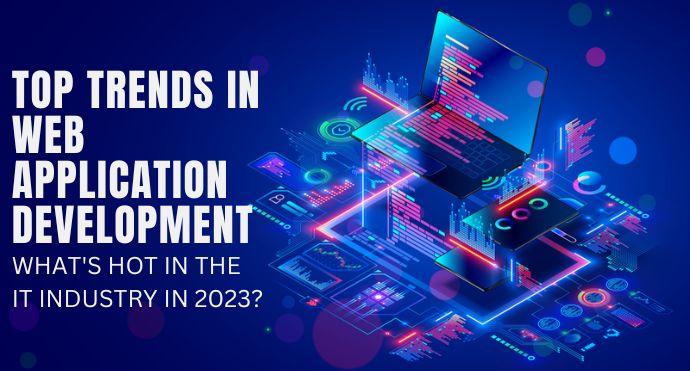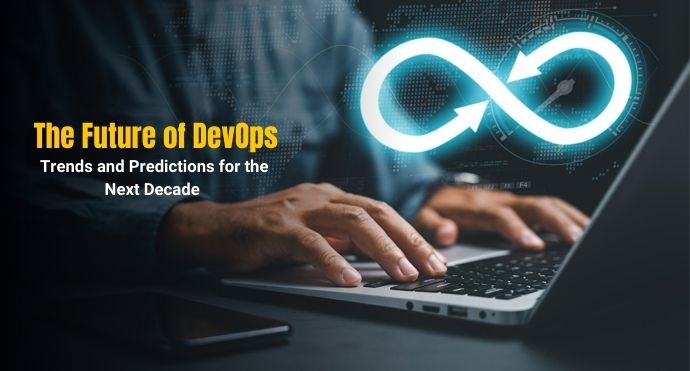In recent years, the combination of cloud computing and DevOps practices has transformed the way organizations develop and deliver software. The cloud provides scalable and flexible infrastructure, while DevOps streamlines the development and deployment processes. As technology continues to evolve, it is essential to explore the future of cloud and DevOps development and understand what to expect. In this blog post, we will delve into the emerging trends and advancements that will shape the future of cloud and DevOps.
Cloud Computing:
Cloud computing is a broad term that encompasses a variety of services delivered over the internet, such as computing, storage, networking, databases, and analytics. The future of cloud computing looks promising with increased adoption across industries. Businesses will benefit from even more innovative services and solutions that offer enhanced capabilities and benefits. Scalability, reliability, and cost-effectiveness will continue to be the driving factors behind cloud adoption.
DevOps:
DevOps is a set of practices that combines software development (Dev) and IT operations (Ops) to deliver software more quickly and reliably. The future of DevOps will witness its widespread adoption as businesses recognize the benefits it brings. DevOps will become the standard way of working, improving the speed, quality, and reliability of software development. Automation will play a crucial role in the DevOps pipeline, reducing errors and enhancing efficiency.
AI and ML:
Artificial Intelligence (AI) and Machine Learning (ML) are already revolutionizing various industries, and they will have a profound impact on cloud and DevOps development. AI and ML technologies will become increasingly important in automating tasks, improving performance, and identifying and mitigating risks. Organizations will leverage AI and ML for autonomous provisioning of cloud resources, automated monitoring for performance and security, and predictive analytics for better decision-making.
Specific Examples of AI and ML in Cloud and DevOps Development:
1. Autonomous Provisioning: AI and ML can automate the provisioning of cloud resources based on demand, optimizing cost and efficiency.
2. Automated Monitoring: AI and ML can continuously monitor cloud resources for performance issues and security threats, enabling proactive problem resolution.
3. Predictive Analytics: AI and ML can analyze data to predict trends, identify risks, and make informed decisions about cloud deployments.
Conclusion:
The future of cloud and DevOps development is promising and filled with possibilities. Increased adoption of cloud computing, the normalization of DevOps practices, and the integration of AI and ML will drive advancements in software development. Businesses can expect scalable and cost-effective cloud solutions, streamlined collaboration through DevOps, and automation-driven efficiency. AI and ML will revolutionize provisioning, monitoring, and analytics, providing better insights and enabling proactive decision-making.
Staying updated with emerging trends and embracing the latest technologies will be crucial for organizations to thrive in the dynamic landscape of cloud and DevOps development. By leveraging these advancements, businesses can gain a competitive edge, deliver software products more efficiently, and meet the ever-evolving demands of the digital era.



